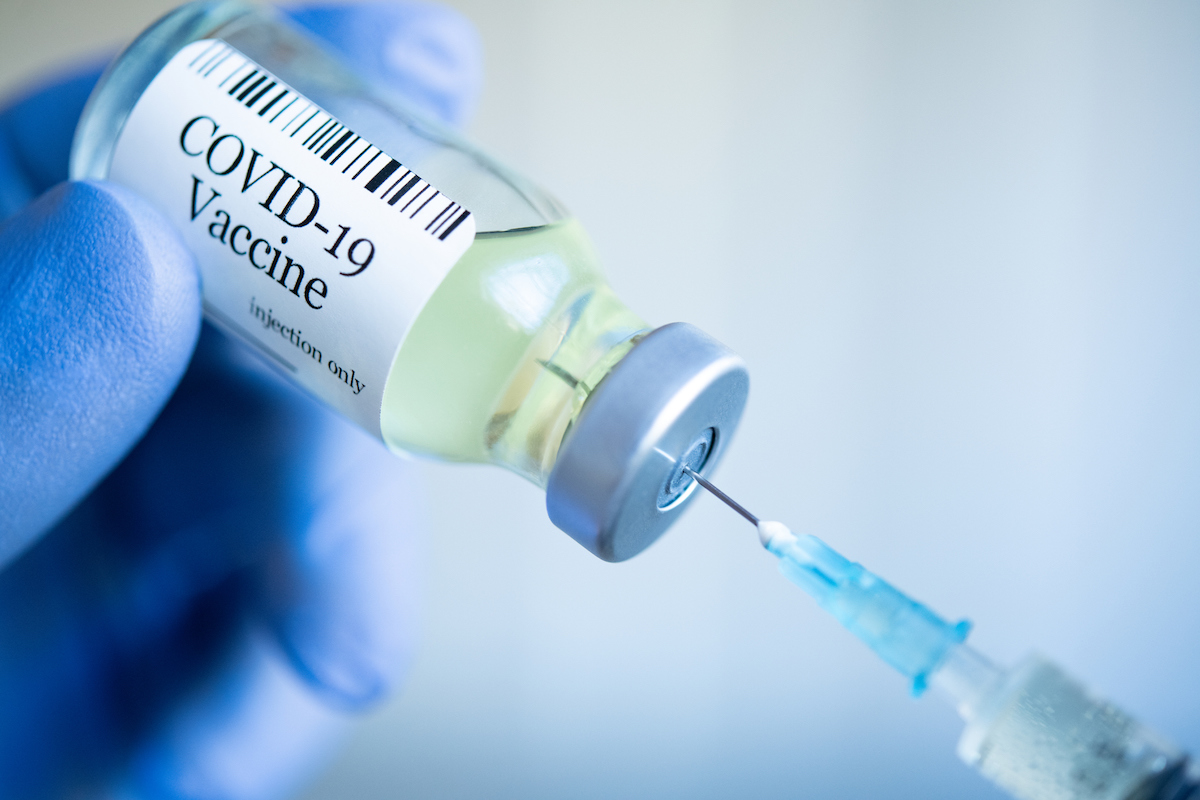A third COVID-19 vaccine might become available in the coming weeks after promising interim trial results of Johnson & Johnson’s single-dose option, reviewed last week by researchers in a report published by the New England Journal of Medicine.
In the report, the experimental vaccine in Phase 3 trials produced protective antibodies in 90 percent of 80 trial participants within 29 days. By the 57th day, it increased to 100 percent of trial participants. Side effects, including fever and muscle aches at the injection site, resolved quickly.
“Our interim analysis indicates that vaccine candidate Ad26.COV2.S (the Johnson & Johnson vaccine) is safe and immunogenic in both younger and older adults,” the report’s authors wrote.
Additional data from the late-stage trial should arrive by the end of the month. It’s expected results will show at least 80 percent effectiveness, well beyond the 50 percent baseline needed for emergency use authorization by the Food and Drug Administration. Both COVID-19 vaccines currently available, from Pfizer-BioNTech and Moderna, achieved about 95 percent effectiveness in clinical trials.
“So far, we know a lot about the Pfizer and Moderna vaccines,” says Dr. Faiqa Cheema, a Hartford HealthCare infectious disease specialist, “but we also know that there are 13 more vaccines that have been studied or are being studied.”
How Does the Johnson & Johnson Vaccine Work?
Johnson & Johnson’s AdVac technology is an adenovirus-vectored vaccine like the AstraZeneca-Oxford University option currently approved for use in Great Britain. It uses a genetically modified common-cold virus (adenovirus) that usually infects chimpanzees. With this technology, the Johnson & Johnson vaccine produces the spike protein in human cells that prompts an immune-system attack of the virus that causes COVID-19.
It was previously used to develop vaccines for Ebola (approved), Zika, respiratory syncytial virus and HIV (investigational).
Adenovector vaccines use double-stranded DNA to encourage an immune response. Both the Pfizer-BioNTech and Moderna vaccines use mRNA, or single-stranded messenger RNA, technology. The Johnson & Johnson vaccine does not require extreme cold storage like the mRNA vaccines.
The AstraZeneca vaccine also could be weeks away from approval in the United States, according to the the country’s top infectious diseases expert, Dr. Anthony Fauci.
How to Get a Vaccine
Anyone in the eligible groups can get vaccinated at a Hartford HealthCare vaccine clinic. An appointment is required to ensure safety. No walk-ins are allowed.
People eligible for a vaccine who already have a MyChartPlus account can log in and make an appointment at a Hartford HealthCare vaccine clinic. If you don’t have a MyChartPlus account, set one up on Hartford HealthCare’s MyChartPlus.org website.
If you’d prefer to schedule your appointment by phone, call the Hartford HealthCare Access Center at 860.827.7690 or toll-free at 833.943.5721.


